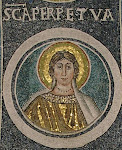Among the words or passages they want deleted are “ Antichrist”, “Enemy” (as referring to Satan), BC/AD (as chronological markers), “Beloved Disciple,” “Gates of Hell,” “Witness,” “Virgin Birth,” “Resurrection,” “Evangelism” “Harvest,” and any reference with an “evangelical tone” or citing the “uniqueness of Christ and Christianity”. They also object to historical references to the persecution and massacres of Christians by Muslims, but at the same time want references favorable to Islam. To make the treatment “more balanced”, they also want the insertion of material denigrating Christianity in some form or fashion. All these I have refused to do.
One of the contributors, Edward Feser, has a blog post about this at NRO and he concludes:
A representative of Wiley-Blackwell has sent an e-mail of his own to the encyclopedia’s contributors, insisting that Kurian’s charges are “completely without foundation.” The press’s actions, the representative claims, stem simply from a concern for “standards of appropriate scholarship.” This concern has led it to decide that the work’s articles require further review before publication. The publisher has not explained why its academic standards did not prevent it from granting final editorial approval and printing the encyclopedia. To paraphrase John Kerry, it would seem that Wiley-Blackwell was for publication before it was against it.
Here is a copy of the letter sent to contributors from Wiley-Blackwell.





2 comments:
No doubt these changes will help sales among the muzlims!
This is an excellent reason NOT to buy this book. This publisher is showing its cowardice in the face of izlam. I'm sure I can get along without their books in the future.
Thanks for the link! While you've quoted Kurian's perspective and Feser's commentary, it might also be worth throwing up a block quote from Wiley-Blackwell, especially because they dispute the editorial basis for their decision that is presented by Kurian. What Kurian fails to mention (unless the publisher is telling us a straightforward lie, which I rather doubt) is that the editorial board was actually left largely out of the process of... well... editing! This apparently wasn't simply a matter of bias, but rather editorial negligence.
While I want to sympathize with academic pressure against confessional perspectives, it seems a jump to conclusions to say that ideology was why this editorial decision was made.
Post a Comment